
Spomenik by Jan Kempenaers
These images by Belgian photographer Jan Kempenaers document a series of ruined World War Two monuments dotted across the landscape of the former Yugoslavian territories.
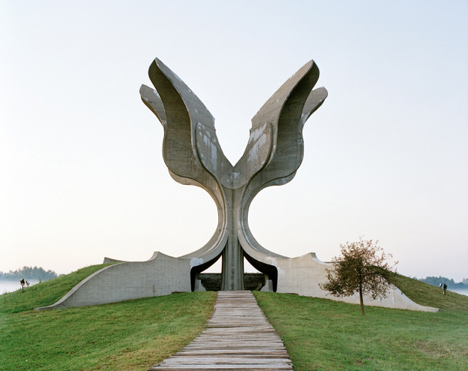
Constructed during the 1960s and 70s by Yugoslavian president Josip Broz Tito, the concrete structures were designed by numerous architects and sculptors to demonstrate the strength of the socialist republic throughout the Balkan hills and valleys.
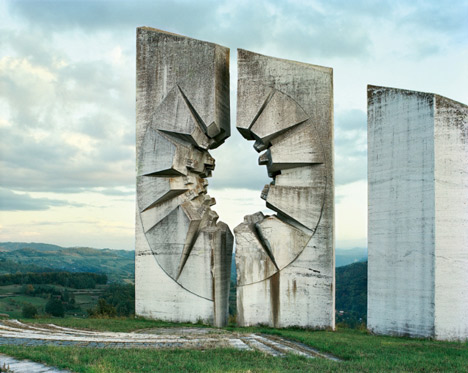
After the dissolution of Yugoslavia many of the monuments were destroyed, but others lay forgotten and deserted, prompting Jan Kempenaers to make them the subject of his Spomenik photography series.
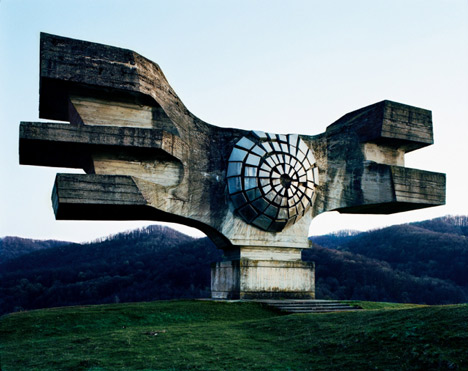
Kempenaers spent four years photographing the sculptures, completing the series in 2009. They go on show at London's Breese Little gallery next month as part of the photographer's first solo exhibition in the UK.
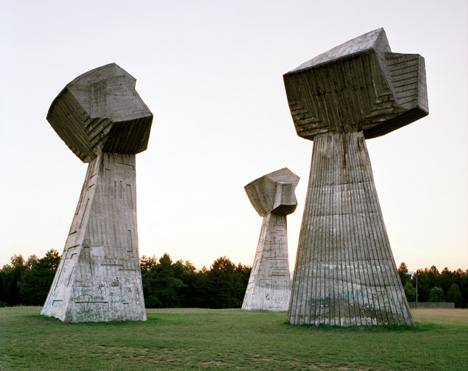
Photographer Jamie Young has undertaken a similar project to document the history of water towers in Ireland. See more photography projects on Dezeen.
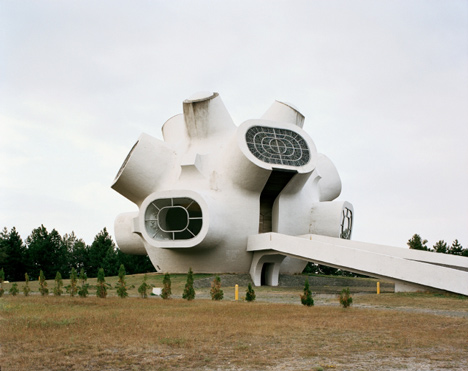
Here's some information about the exhibition:
Jan Kempenaers
Breese Little is delighted to announce Jan Kempenaers' first solo exhibition in London. The show will present a selection of Kempenaers' architectural and island studies in tandem with the renowned Spomenik series charting World War Two memorials built in the 1960s and '70s across The Balkans in the former Yugoslavia.
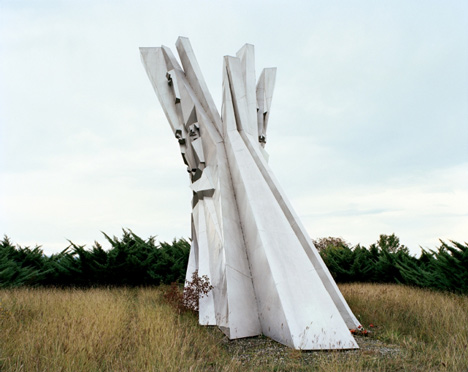
Over the last decade, the Antwerp-based photographer has developed a heightened and conscientious aesthetic. Gradual metamorphosis is charted with shared inevitability in both the natural world and in response to mankind's intervention.
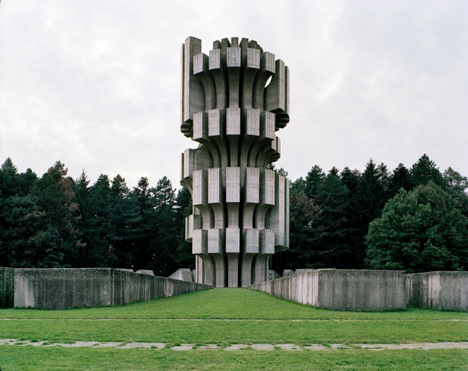
Spatial arrangement is privileged across abandoned utopian visions and cumulative urban sprawl. These images draw focus to the temporality of modernist ambitions, which nevertheless maintain their monumentality, an attraction of their natural counterparts.
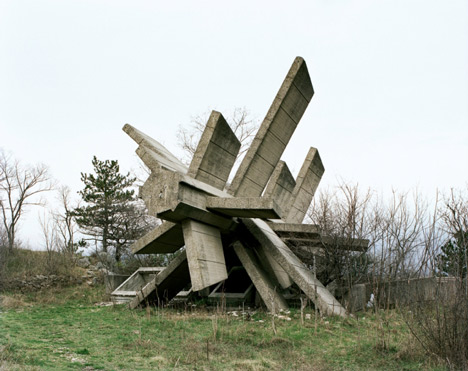
Kempenaers' architectural arrangements are counter-balanced with expansive seascapes in the exhibition, captured with an interchangeable formal awareness, characteristic of his practise.
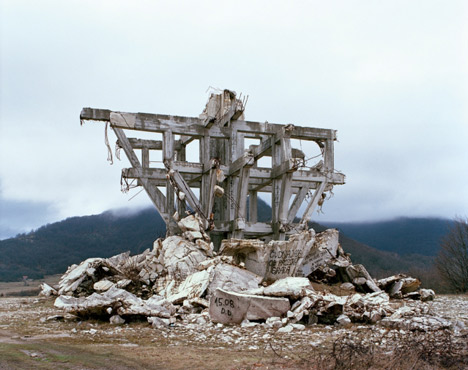
Uniformly overcast skies suggest parallels across these scenes and suburbia, proposing the alternative conditions of visual interest in a post-industrial age.
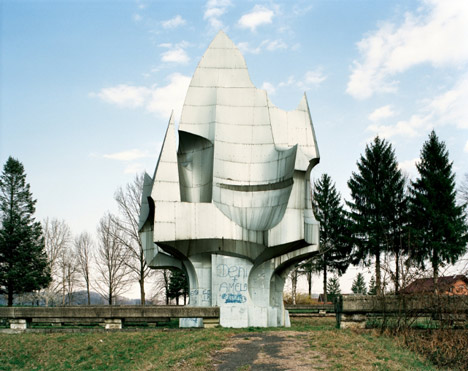
Nevertheless, Kempenaers' disinterested eye engenders a strict geometric awareness, distancing emotion from his subjects, which remain devoid of people.